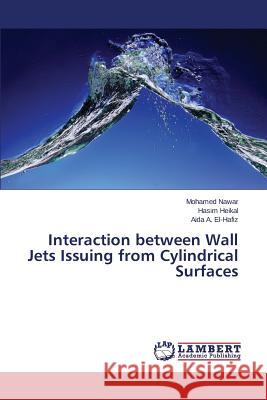Interaction Between Wall Jets Issuing from Cylindrical Surfaces » książka
Interaction Between Wall Jets Issuing from Cylindrical Surfaces
ISBN-13: 9783659529665 / Angielski / Miękka / 2014 / 144 str.
The main objective of the present work is to study the effect of cylindrical curvature, pitches between the jets, and the wall distance from the jet centerline on the flow field characteristics of the wall jet. Mean velocity distribution in both span-wise and normal directions were measured using total pressure and boundary layer probes, respectively.The flow filed is measured using a hot wire anemometer. Local turbulence intensity, root mean square value, skewness, and flatness in normal direction are measured downstream the jets. Flow visualization using oil film technique was carried out for a better explanation of the characteristics of the flow field downstream the wall jet. The turbulence intensity in the inner layer decreases as the wall distance increases, and it remains constant far downstream the jet exit.In the outer layer, it also decreases in the normal direction. The skewness and flatness seem to be constant in the normal direction far downstream the jet exit.
The main objective of the present work is to study the effect of cylindrical curvature, pitches between the jets, and the wall distance from the jet centerline on the flow field characteristics of the wall jet. Mean velocity distribution in both span-wise and normal directions were measured using total pressure and boundary layer probes, respectively.The flow filed is measured using a hot wire anemometer. Local turbulence intensity, root mean square value, skewness, and flatness in normal direction are measured downstream the jets. Flow visualization using oil film technique was carried out for a better explanation of the characteristics of the flow field downstream the wall jet. The turbulence intensity in the inner layer decreases as the wall distance increases, and it remains constant far downstream the jet exit.In the outer layer, it also decreases in the normal direction. The skewness and flatness seem to be constant in the normal direction far downstream the jet exit.











